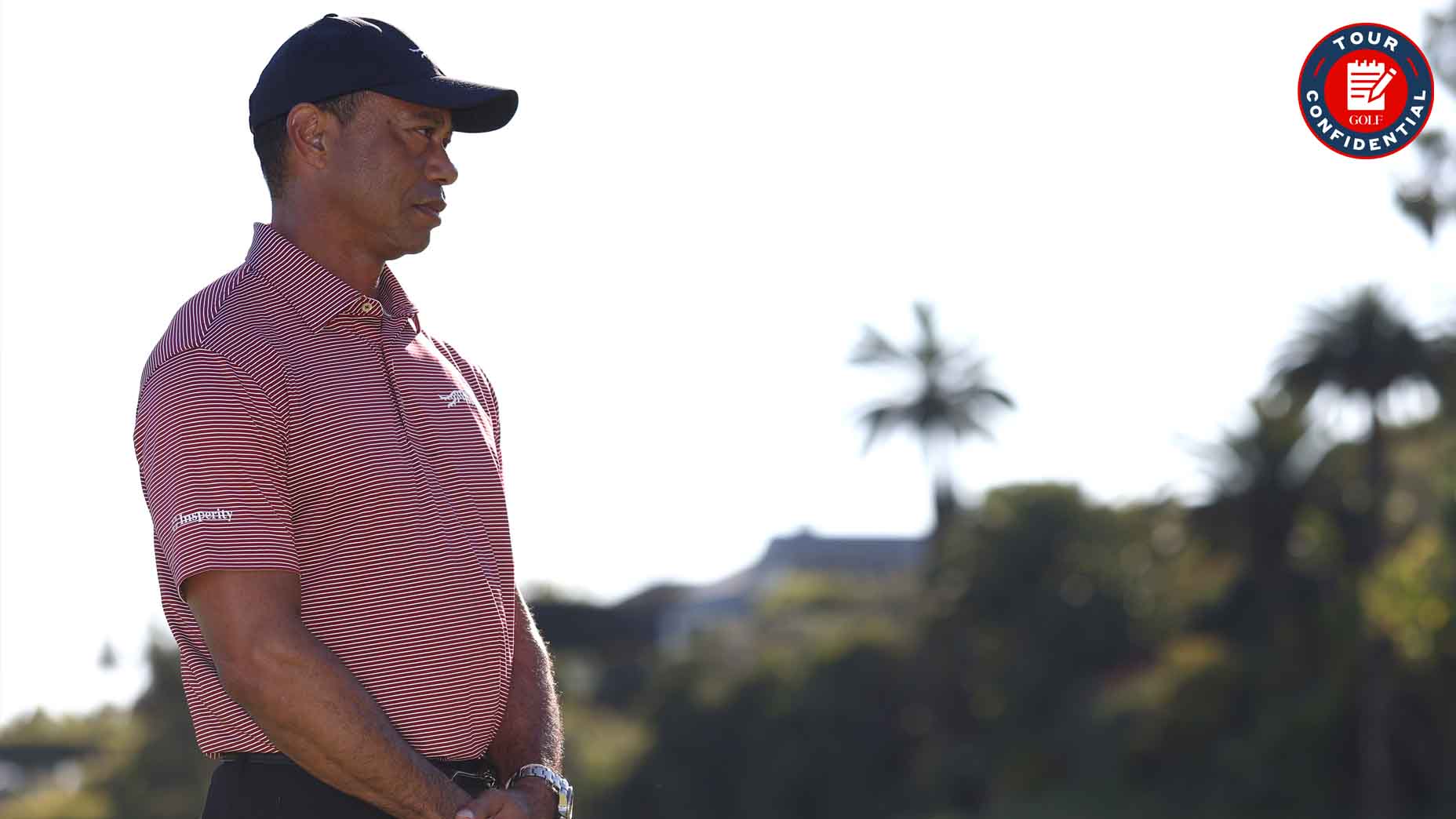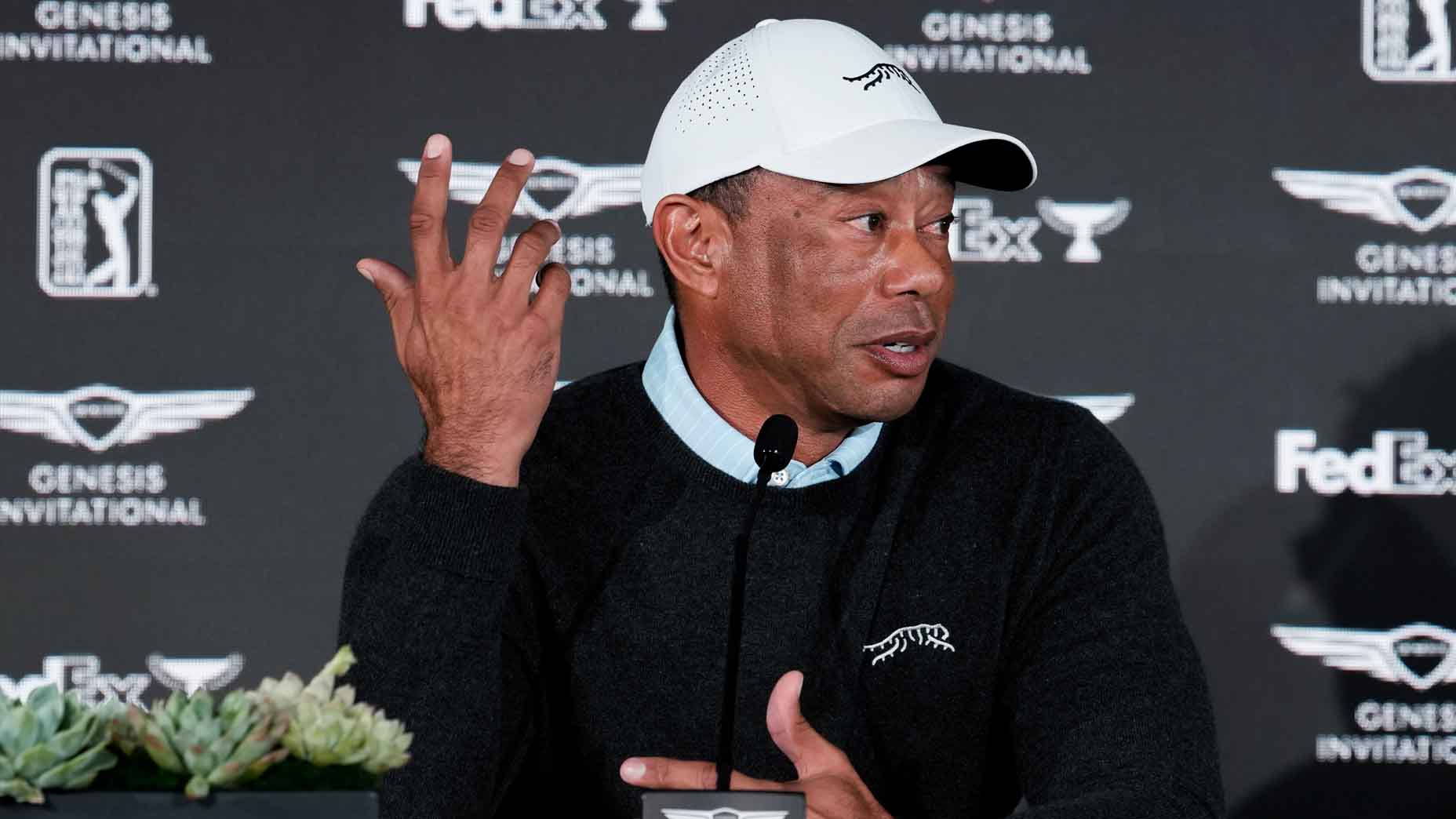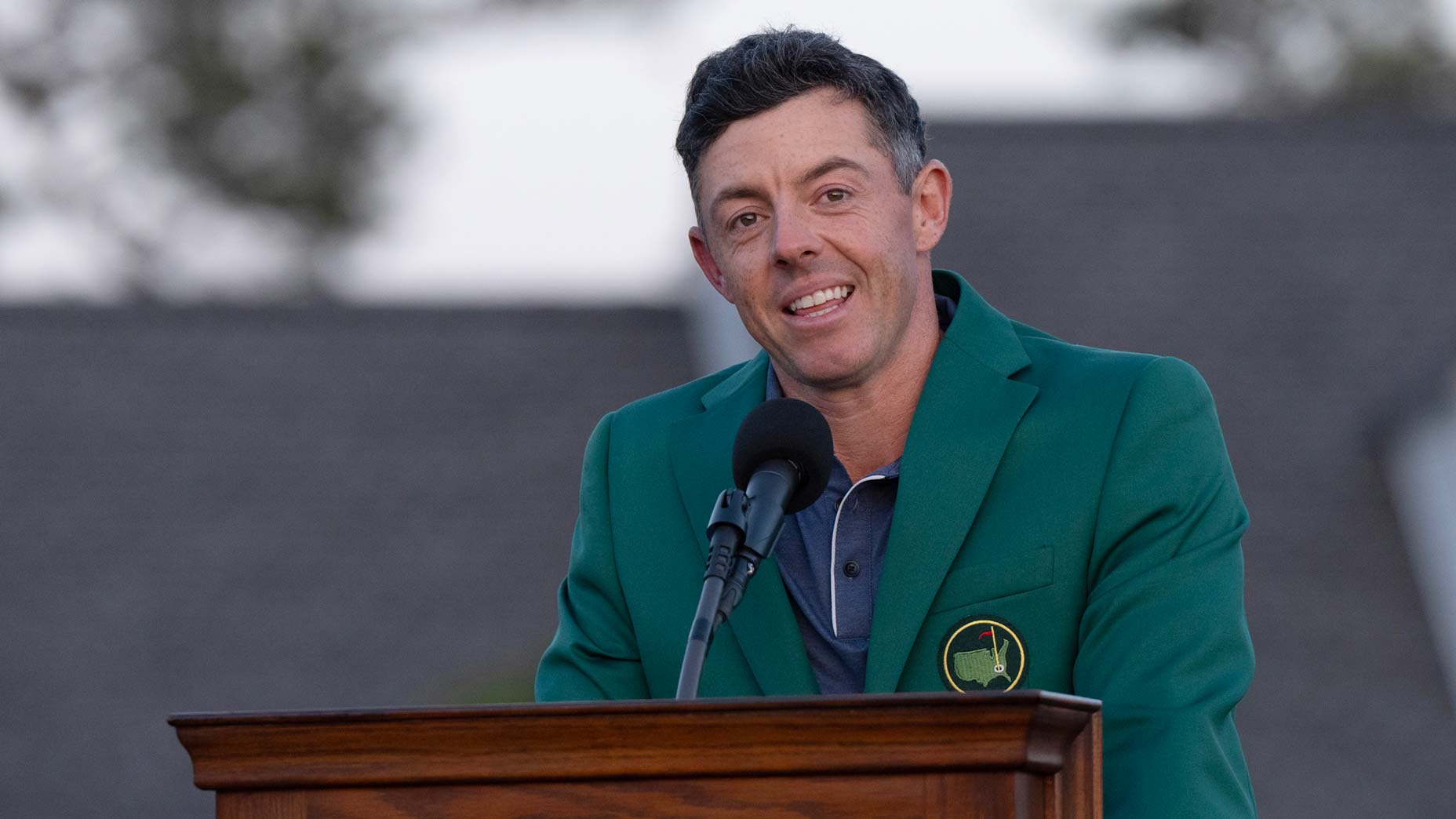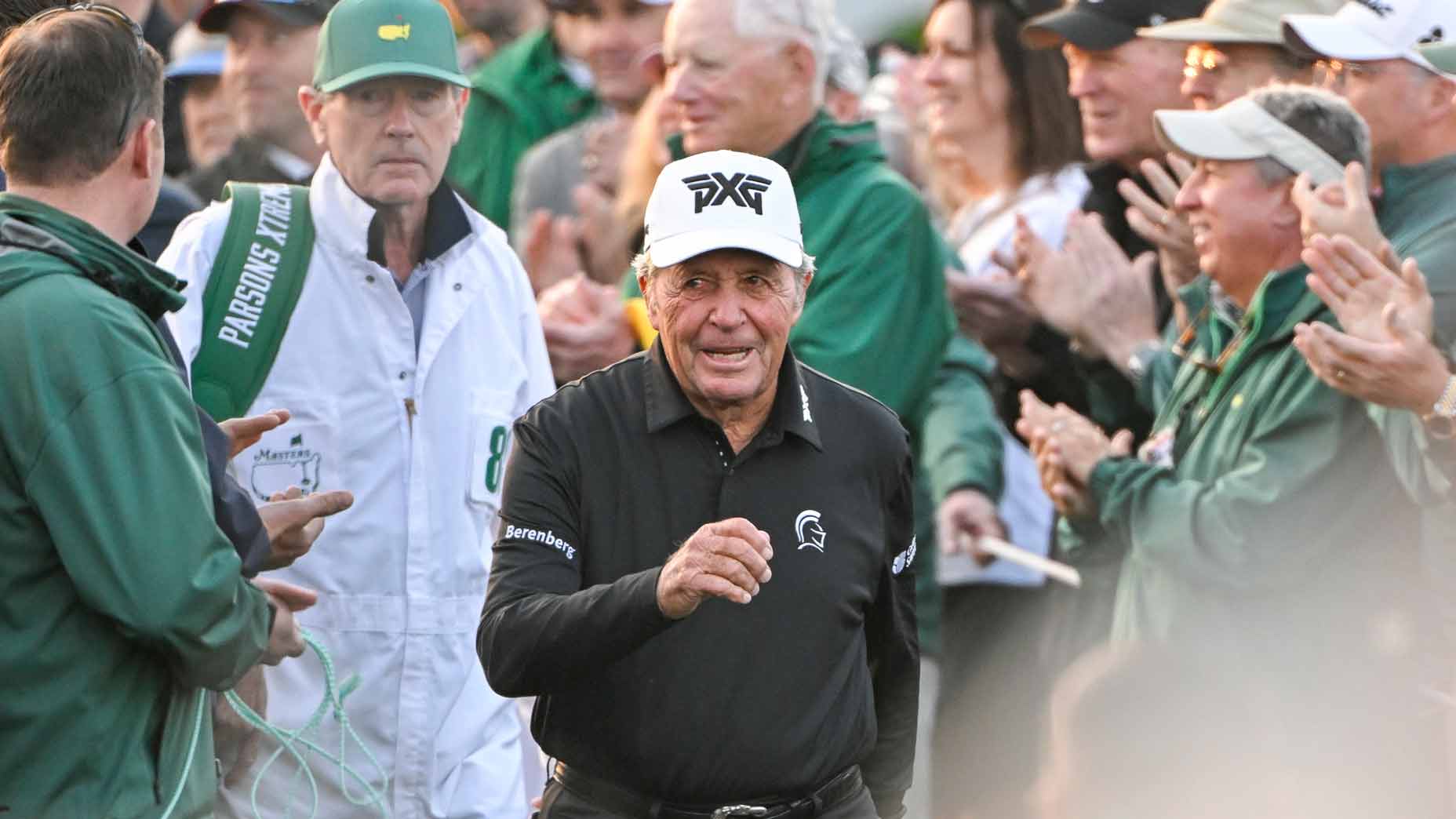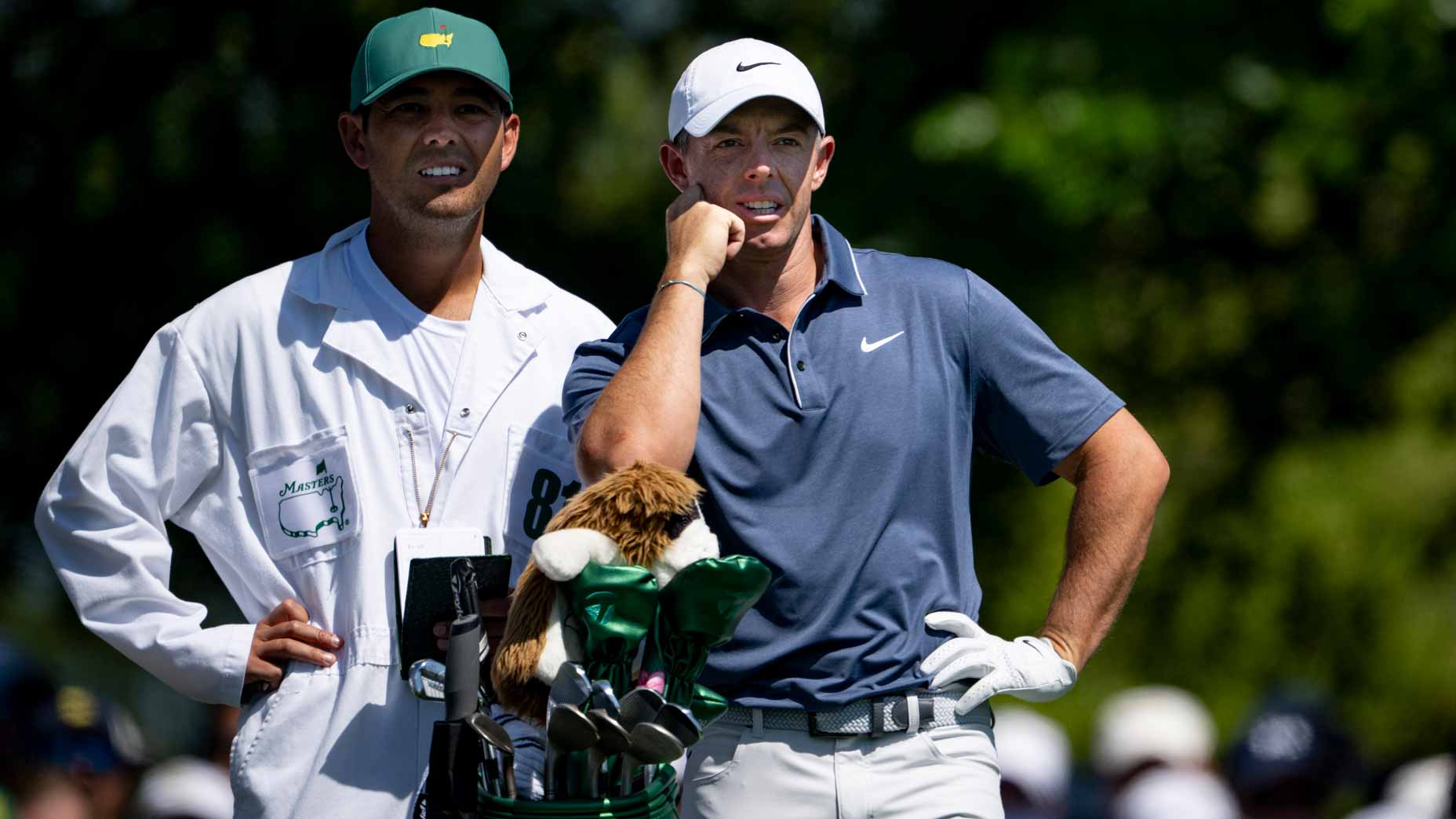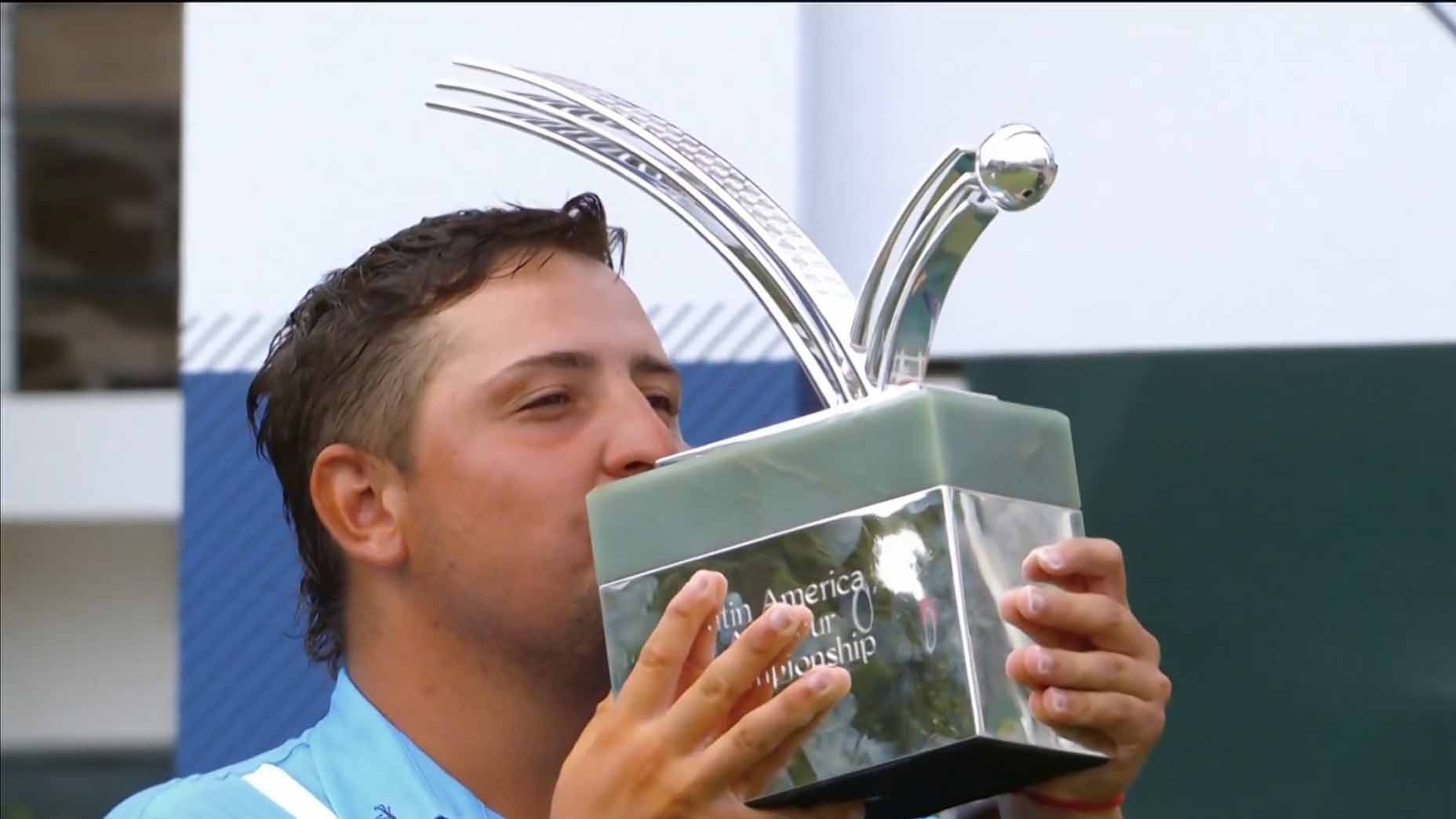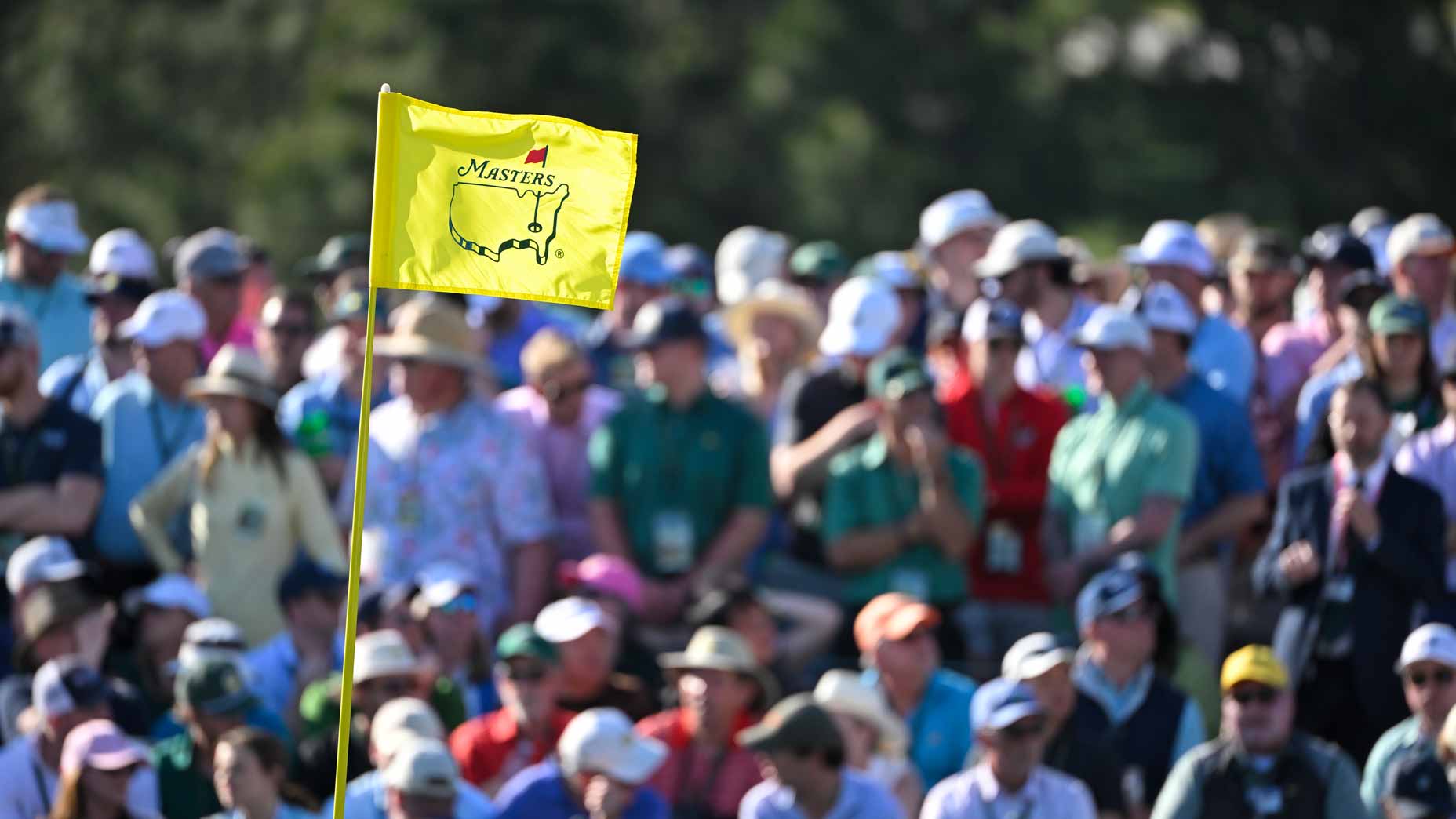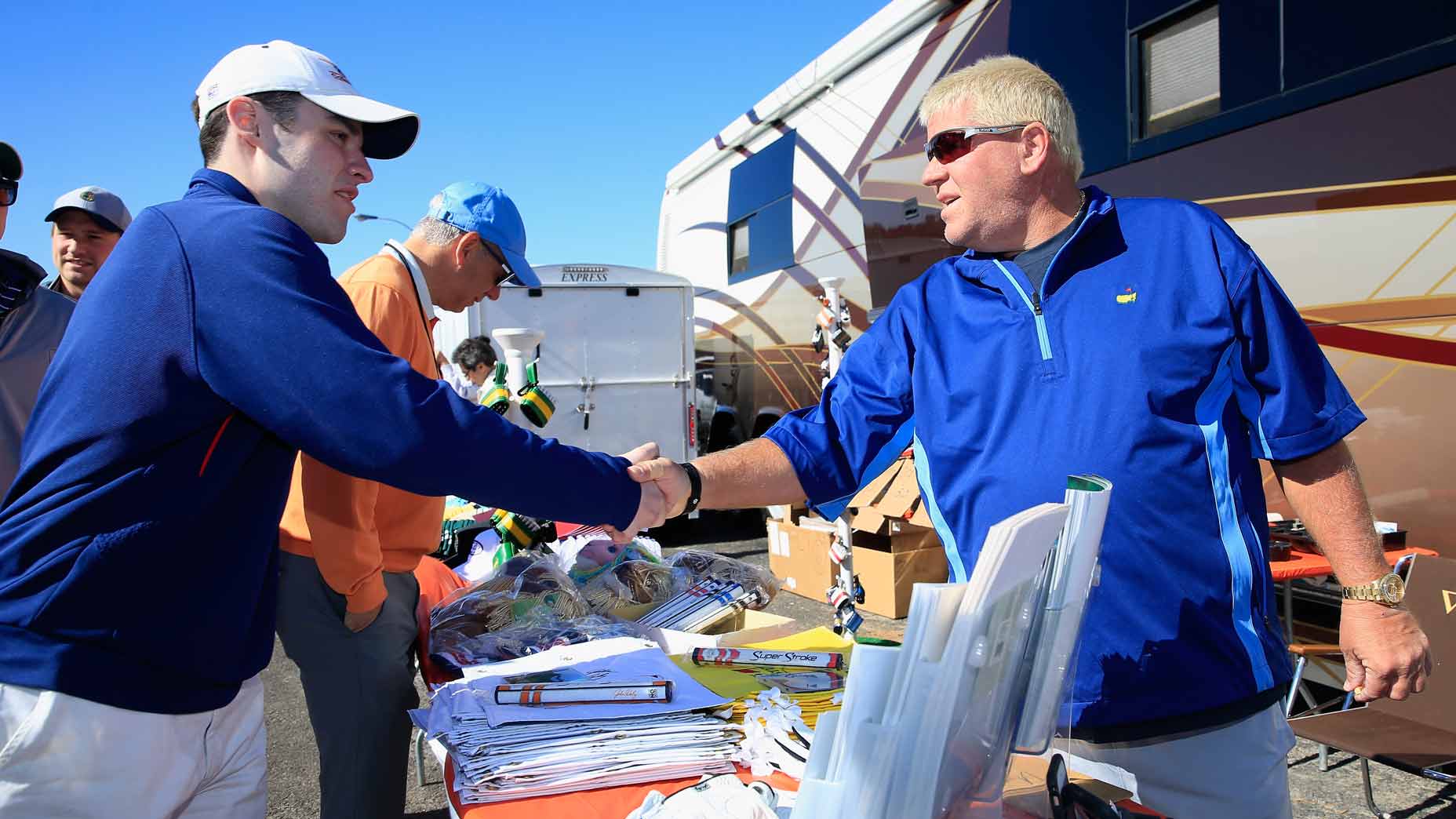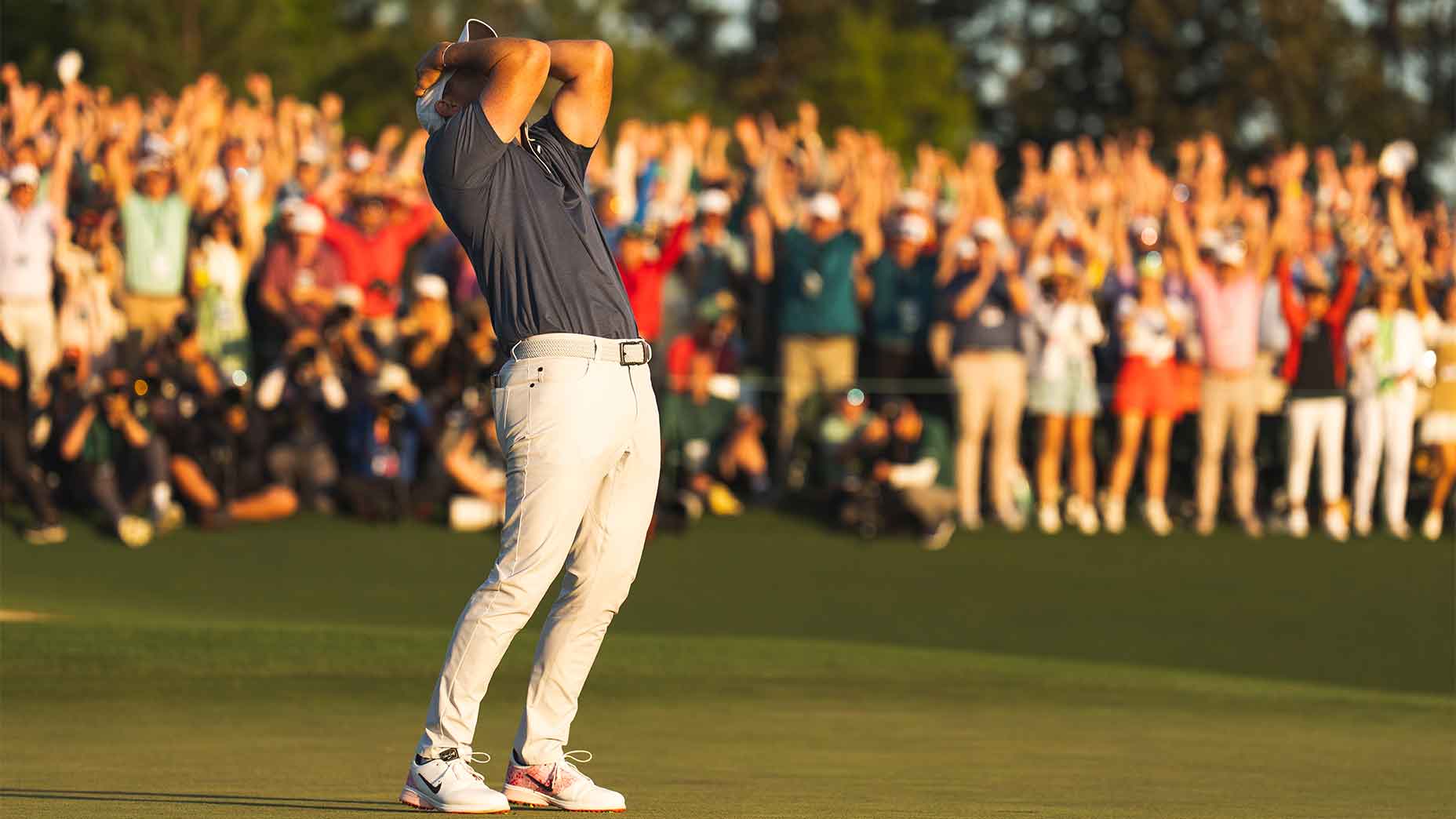AUGUSTA, Ga. — Seamus Power had hit 113 shots in his first Masters, and he was still awaiting his first birdie. It was long past the point of curiosity, feigned amusement, or even frustration. It was downright anxiety.
Power wasn’t even playing poorly, but his shots didn’t seem to make much of a difference anymore. He pumped one into the trees on the fifth and made a bogey, then made a par from the pine straw on the ninth. He missed a short putt on the 8th and made a longer one the hole before, but the result was all the same. Just pars and bogeys.
“I just can’t believe it’s been 27 holes,” said his fitness coach, Mike Carroll, as he walked to the 10th tee.
And then, finally, the breakthrough. A good drive down the right side at 10, and from 197 yards, a flushed 6-iron to four feet.
“This could be it,” Carroll said.
Power took longer reading the putt than usual. When the ball finally rolled into the center a few moments later, Power’s personal chef for the week — taking time off from his day job as the head chef at Old Head Golf Links — let out a roar. Power raised his arms, turned his head to the sky and let out a beaming smile.
“I was truly delighted,” Power said.
There will be a moment on Sunday when the eventual winner of this golf tournament celebrates his win in the same way. But Friday at Augusta National was not it. It was a day for savoring the little victories.

Watch your playing partners closely
The wind was the focus for players on Friday. It was gusting at an irregular clip, and with the various valleys within holes at Augusta National, players could never quite get a sense of what they needed to do.
“It’s a lot of guessing,” Morikawa, who shot a two-under round of 70 says. “A lot of just trusting what you are going to do, but it’s weird.”
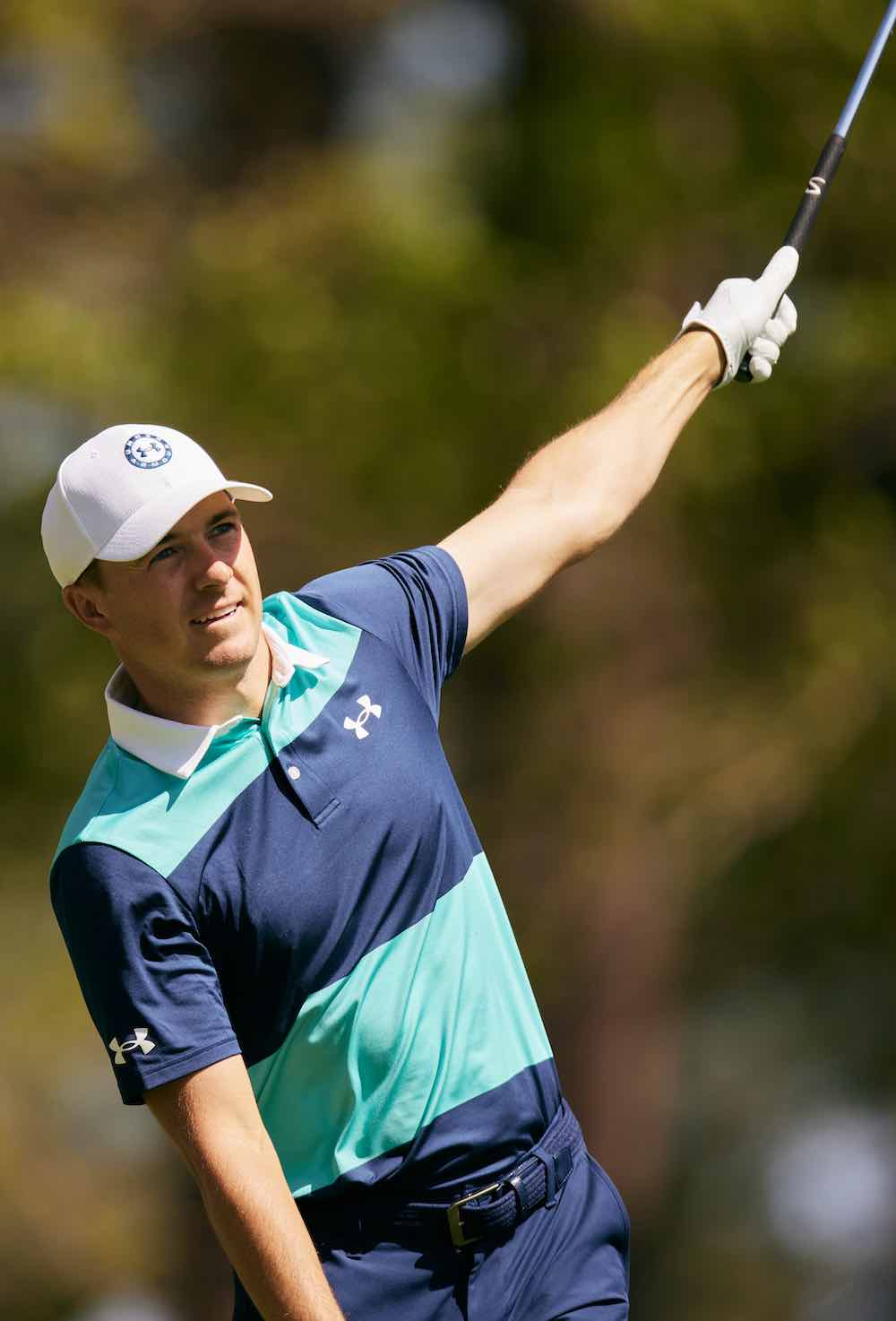
The guesswork was at its weirdest on the 12th hole. A shot ripe for indecision at the best of times, the layout of Amen Corner means players enjoy the blessing and the curse of what comes before them. For the stout mid-morning pairings, that meant watching Jordan Spieth sink two into the water — and then Xander Schauffele in the same group — at Augusta’s 12th hole.
“It’s not a great visual,” said Rory McIlroy after his round. “It’s so hard to step up and commit.”
“You kind of have to hit it and hope for the best,” added Viktor Hovland.
But ultimately, it’s a trade worth taking, they say. While it may make it harder to commit, better to let others be the guinea pigs on shots of intense confusion. It makes listening and learning from those playing before you supremely important on the windy, tricky days.
“In a way you’re sort of happy to not be the first hitting the tee shot because at least you can learn from your playing partner’s ball and you can see the ball flight and how much the wind affects it,” McIlroy says.
“Whenever you see someone in front of you hit it into the trouble that you’re trying to avoid, you maybe give yourself just a little bit more margin for error and aim a little further to the right, or to the left or take more club or whatever it is. I’m not saying you want to try to make a bogey before every par-3, but in these conditions, it’s not a bad idea.”
Seeing both his playing partners Spieth and Schauffele end in the water convinced Hovland on a subtle change: Strengthening his grip and committing to his “Oklahoma shot” — named because it was forged in the winds his freshman year at Oklahoma State. It was the only ball of the group to end on dry land.
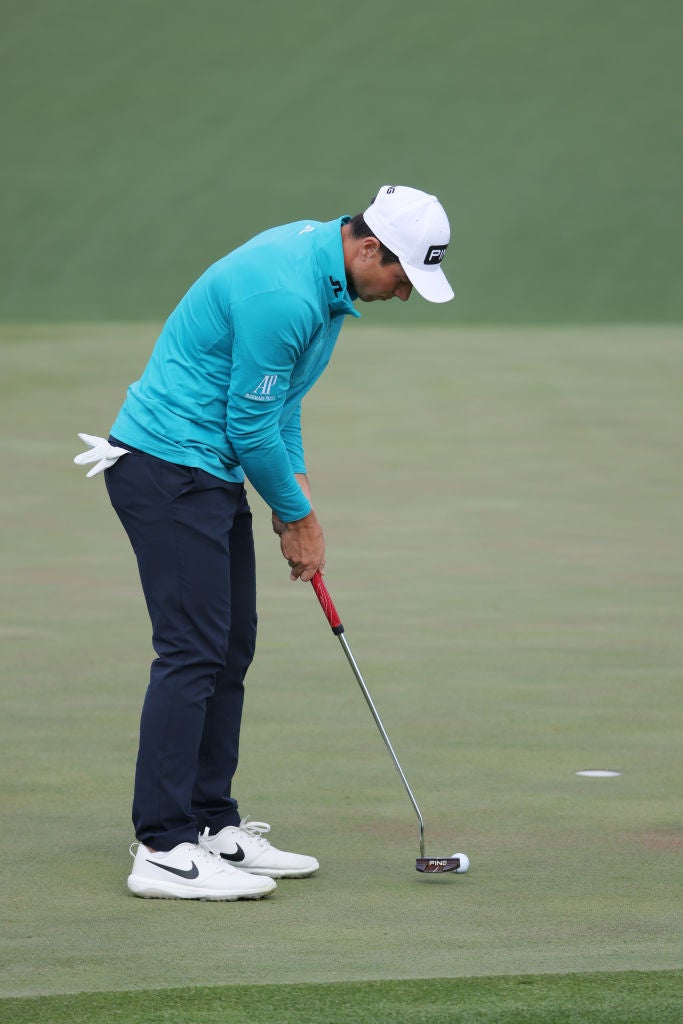
Learning to lower expectations
But ultimately, no amount of learning from others can mask the essential truth on days like today: That all notions of normality are put on hold. Difficult days require lowering the bar of expectations.
“I’m just trying to keep between the trees,” Dustin Johnson said after his one-over 73.
The key, on days like today, isn’t to make birdies, or even to avoid bogeys. It’s to avoid big numbers. When birdies or pars are in short supply, it’s the big numbers that are the real scorecard-killers. You won’t be able to recover from them. Your only chance is to play safe, and avoid them altogether.
“You’ve just got to get through it and try to not make doubles, essentially,” Hovland said. “Try to get yourself looks for par, try to make easy pars, and if you make a bogey, it’s not the end of the world.”
And sometimes, you may make a big number anyway. Hovland has made two doubles so far this week, which meant fighting his natural tendency to fight back quickly.
“You definitely have to be even-keeled,” he says. “It’s just a matter of not freaking out and trying to get that shot back immediately, which is a tendency that I have sometimes.”
Friday at the Masters wasn’t a day to be won. It was a day not to lose.
At the start of the week, McIlroy said the winner would need to master three “Ps” — patience, perseverance and persistence.
It was those qualities, more than any shot in players’ bags, that Augusta National demanded on Friday. And the players still with a chance come Sunday will have submitted to its wishes.


